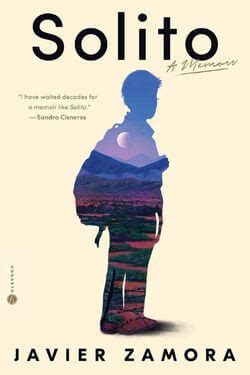Solito
You can find plenty of reviews, interviews with the author, and favorable press on Javier Zamora’s memoir about immigrating to America 25 years ago. I read the book because I wanted to get a sense of the issue on a more personal level that would help me understand from a migrant’s perspective.
The memoir certainly gives us that. Zamora is a poet, and he tells a captivating, emotionally powerful tale of his experience as a 9-year-old traveling 4,000 miles from El Salvador to the U.S. Both of his parents immigrated separately several years before the story begins, and Javier has lived with his grandparents until the time comes for him to make the trip. Having paid an experienced, locally-known “coyote” to organize the proceedings, his family places him in the company of half a dozen adult strangers to make the trek illegally.
The journey takes seven weeks, much longer than intended, and it’s at times harrowing. The real stars of the story are the few fellow travelers who assume responsibility for Javier, offering genuine, generous love and protection though at times it proves costly. Zamora wrote the book partly for them, hoping it finds them and affirms his deep gratitude.
The tale takes place decades before the total breakdown of border policy we see unfolding today. All the migrants have their motivations and hopes for relocating to America, including young Javier. His dreams, readers can see, are overblown and fantastical, as one might expect from a child. But part of the discomfort of reading this book was the low-level anxiety I felt about how all the characters would react when, should they arrive successfully, their expectations met reality.
At different points along the way, I wondered why his family had sent him, as his life with his grandparents and aunt was loving and stable. The strongest reason is the yearning to be reunited with his parents; the other reason is the family’s seeming belief in the material benefits of the move. Zamora talks about this, for example, in this LA Times interview.
Though the story is told by a young boy, Javier is perceptive, and the characters that emerge from his observations and reflections are drawn with complexity. While the migrants demonstrate great courage and compassion, I couldn’t forget that they were coming to the country illegally, beginning their life in America by breaking its laws. They view their destination with a strange mixture of longing, hope, entitlement, and hatred; they yearn to reach America, but they regard law enforcement as a malevolent enemy. How does that work out over the long haul for those who make it to “La USA,” as they call it in the book? Do those different strands eventually form themselves into a harmonious whole?
All told, I got my wish: a chance to see the experience from the perspective of a migrant. Solito is a powerful, deeply moving, troubling book, one that leaves me with a new awareness of the strength and kindness ordinary people can manifest even under great stress. I’m grateful to Zamora for doing the long and difficult work of recovering and writing his memories.





